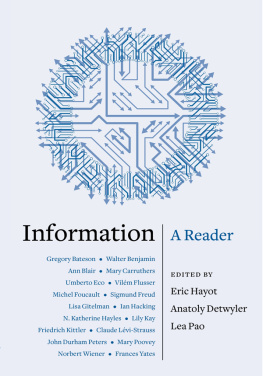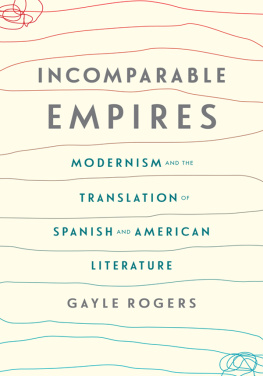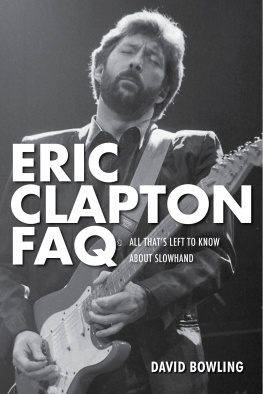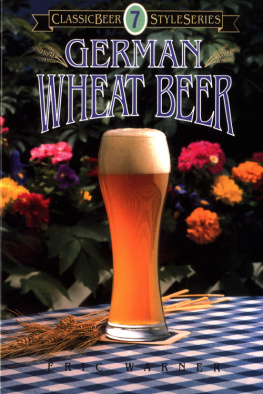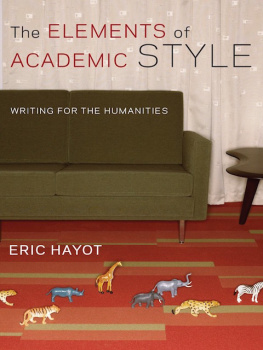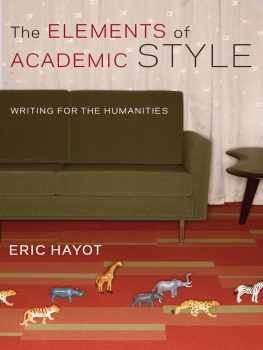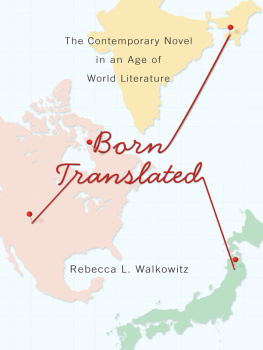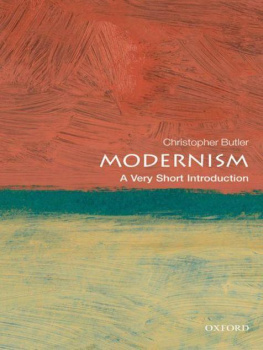A New Vocabulary for Global Modernism
Modernist Latitudes
Modernist Latitudes
Jessica Berman and Paul Saint-Amour, Editors
Modernist Latitudes aims to capture the energy and ferment of modernist studies by continuing to open up the range of forms, locations, temporalities, and theoretical approaches encompassed by the field. The series celebrates the growing latitude (scope for freedom of action or thought) that this broadening affords scholars of modernism, whether they are investigating little-known works or revisiting canonical ones. Modernist Latitudes will pay particular attention to the texts and contexts of those latitudes (Africa, Latin America, Australia, Asia, Southern Europe, and even the rural United States) that have long been misrecognized as ancillary to the canonical modernisms of the global North.
Barry McCrea, In the Company of Strangers: Family and Narrative in Dickens, Conan Doyle, Joyce, and Proust, 2011
Jessica Berman, Modernist Commitments: Ethics, Politics, and Transnational Modernism, 2011
Jennifer Scappettone, Killing the Moonlight: Modernism in Venice, 2014
Nico Israel, Spirals: The Whirled Image in Twentieth-Century Literature and Art, 2015
Carrie Noland, Voices of Negritude in Modernist Print: Aesthetic Subjectivity, Diaspora, and the Lyric Regime, 2015
Susan Stanford Friedman, Planetary Modernisms: Provocations on Modernity Across Time, 2015
Steven S. Lee, The Ethnic Avant-Garde: Minority Cultures and World Revolution, 2015
Thomas S. Davis, The Extinct Scene: Late Modernism and Everyday Life, 2016
Carrie J. Preston, Learning to Kneel: Noh, Modernism, and Journeys in Teaching, 2016
Gayle Rogers, Incomparable Empires: Modernism and the Translation of Spanish and American Literature, 2016
Celia Marshik, At the Mercy of Their Clothes: Modernism, the Middlebrow, and British Garment Culture, 2016
Christopher Reed, Bachelor Japanists: Japanese Aesthetics and Western Masculinities, 2016
Donal Harris, On Company Time: American Modernism in the Big Magazines Eric Bulson, Little Magazine, World Form, 2016
Aarthi Vadde, Chimeras of Form: Modernist Internationalism Beyond Europe, 19142014, 2016
A New Vocabulary for Global Modernism
Edited by
Eric Hayot and Rebecca L. Walkowitz
Columbia University Press
New York

COLUMBIA UNIVERSITY PRESS
Publishers Since 1893
NEW YORK CHICHESTER, WEST SUSSEX
cup.columbia.edu
Copyright 2016 Columbia University Press
All rights reserved
Library of Congress Cataloging-in-Publication Data
Names: Hayot, Eric, 1972 editor. | Walkowitz, Rebecca L., 1970 editor.
Title: A new vocabulary for global modernism / edited by Eric Hayot and Rebecca L. Walkowitz.
Description: New York: Columbia University Press, 2016. | Series: Modernist latitudes | Includes bibliographical references and index.
Identifiers: LCCN 2016013382 (print) | LCCN 2016026280 (ebook) | ISBN 9780231165204 (cloth: alk. paper) | ISBN 9780231165211 (pbk.: alk. paper) | ISBN 9780231543064 (e-book) Subjects: LCSH: Civilization, Modern21st century. | GlobalizationSocial aspects. | Modernism (Aesthetics)
Classification: LCC CB428.N49 2016 (print) | LCC CB428 (ebook) | DDC 909dc23
LC record available at https://lccn.loc.gov/2016013382
A Columbia University Press E-book.
CUP would be pleased to hear about your reading experience with this e-book at cup-ebook@columbia.edu.
COVER DESIGN: ARCHIE FERGUSON
Contents
Eric Hayot and Rebecca L. Walkowitz
Christopher Reed
Efthymia Rentzou
David Damrosch
Tsitsi Jaji
Christopher Bush
Jacob Edmond
Jahan Ramazani
B. Venkat Mani
Mark Goble
Monica L. Miller
Martin Puchner
David L. Pike
Judith Brown
Rachel Adams
Gayle Rogers
Mariano Siskind
We would like to thank all of our colleagues in the American Comparative Literature Association and the Modernist Studies Association, whose questions, ideas, and work have inspired this book. Were grateful to our contributors for so gamely entering into the project. A New Vocabulary would not have been possible without the intelligence and work of series editors Jessica Berman and Paul Saint-Amour and of Philip Leventhal at Columbia University Press. Eric says thank you to Lea; Rebecca says thank you to Henry.
Eric Hayot and Rebecca L. Walkowitz
Why This Book Now?
A New Vocabulary for Global Modernism could not have been written ten years ago. It operates in the wake of the fields unprecedented expansion. Once focused exclusively on artworks produced in Europe and the United States, modernist studies now engages with aesthetic objects and expressive culture produced in spaces throughout the world. Hefty anthologies such as The Oxford Handbook of Global Modernisms and The Oxford Handbook of Modernisms, published in 2012 and 2010, respectively, introduce readers to the creativity of artists and intellectuals in Havana, Hanoi, and Helsinki as well as in London, Paris, and New York. A New Vocabulary for Global Modernism begins from the premise, established by these substantial reference works and by a series of ground-clearing essays that preceded them, that modernism was a world phenomenon.in two ways. The first way involves showing how the intellectual paradigms weve long associated with modernismsuch as tradition, antiquity, style, classic, and translationare transformed and how new paradigmssuch as context, puppets, slum, copy, and pantomimeemerge when the archive extends beyond the European center. The second way explores how our methodologies change when we approach modernism comparatively and when we draw out modernisms own engagement with ideas of the world. This book thus adds to the archive of modernist works but also to the archive of works that imagine other worlds and other versions of the world.
A New Vocabulary is therefore not a reference but a users manual. It is a set of instructions for entering into modernism from a global perspective and for entering into a global perspective from modernism. This difference, between sampling modernism and revising the organizing principles of modernism, has shaped the form of the object you have before you. Readers will notice, first of all, that the essays are organized by words rather than by geographies. A New Vocabulary does not accumulate distinctive national or regional traditions. It is not organized as a list or an atlas of located modernismsmodernism in Norway, modernism in India, modernism in Peru, and so on. Instead, each essay draws out connections across several geographies, often following an idea as it travels among various readers and writers and visual artists. So, for example, Judith Brown traces style as it moves from being an Orientalist term in European art criticism to a term deployed by the Orient itself and, thus, considers how Indian artists overtook and reshaped a concept that had implicitly excluded them. Martin Puchner lights on puppets to show that childhood, folklore, and cultsphenomena usually excluded from modernismwere at the heart of modernisms engagement with exoticism and images of the nonhuman. Puchner demonstrates that the European fascination with Asian puppetry was animated in part by a desire to diminish rather than extend human agency. Refining the usual claim that European artists used non-European devices to heighten their own sense of individualism while negating the individualism of others, Puchner argues that theater makers in the West turned to the East to imitate its models of antihumanism and that non-Western theater makers have used intercultural puppetry to generate novel forms of estrangement.
Next page



